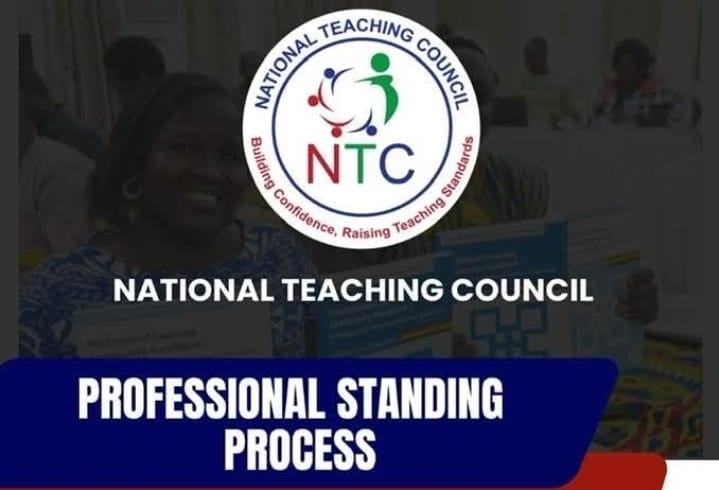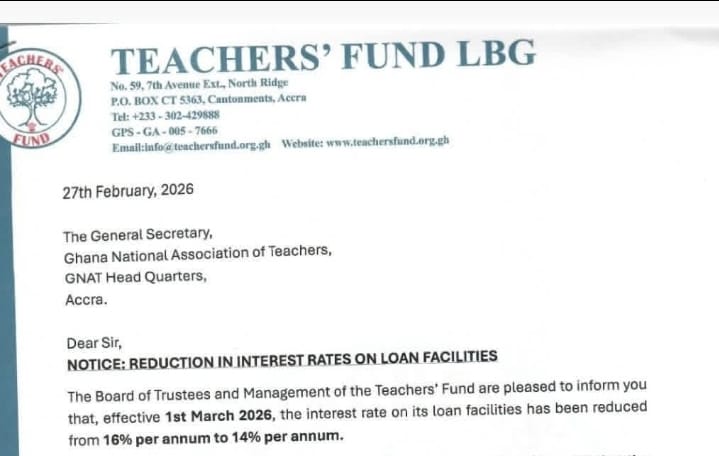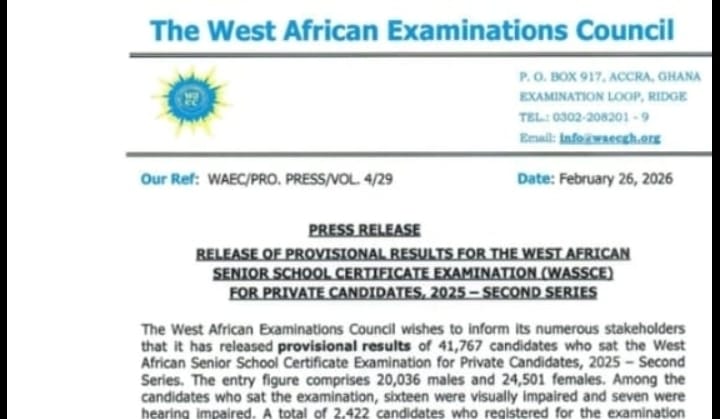
Ghana’s Government Under Fire: The ‘Insulting’ 2.5% to 5% Offer in 2026 Base Pay Talks Highlights Lack of Empathy
In the midst of Ghana’s persistent economic challenges, public sector workers are once again at the center of heated debates over fair compensation. A recent press statement from a coalition of disillusioned labor unions has spotlighted what they call the government’s “insulting counter-offer of 2.5%, later adjusted to 5%” during the 2026 base pay negotiations. This move, they argue, demonstrates a profound lack of empathy and respect for the sacrifices made by workers who keep essential services running amid rising costs and hardships. As negotiations drag on, this phrase has become a rallying cry for those feeling undervalued in a system strained by inflation, taxes, and utility hikes..
Follow us on WhatsApp for more updates: https://whatsapp.com/channel/
Seekers Consult
Contact Us for Your Study Abroad Journey
We search for schools and check available scholarships for you
Contact: 0550414552 / 0362297079

Loan for government workers
Turnitin checker (Plagiarism and AI checker)
Transcript Application ( College, UEW, UCC, KNUST ) and Evaluation
English Proficiency
Recommendation letter
Project work/thesis for undergraduate, master’s, and PhD students.
Apply for Affidavit, Gazette instantly
Passport and Visa Applications
All other Internet Services
A History of Tense Wage Negotiations in Ghana
Ghana’s public sector pay is governed by the Single Spine Salary Structure (SSSS), introduced to standardize wages and reduce disparities. Annual base pay negotiations involve the Fair Wages and Salaries Commission (FWSC), the government (represented by ministries like Finance and Labour), and Organised Labour—a coalition of unions. These talks determine increments that affect salaries, pensions, and social security benefits for millions.
Recent years have seen mixed outcomes. For 2024, an agreement was reached for a 23% increase from January to June. In 2025, after tough bargaining that required presidential intervention, workers received a flat 10% hike— a figure many deemed insufficient given post-agreement utility tariff increases of 21%. Now, for 2026, negotiations officially kicked off on October 31, 2025, at the Ghana Employers Association, with the FWSC inviting stakeholders to focus on fairness and sustainability.
Unions have been ramping up pressure since early October, urging the government to wrap up talks before the November 2025 budget presentation to avoid delays. Groups like the Ghana National Association of Teachers (GNAT) and the Ghana Medical Association (GMA) have emphasized the need for increments that match inflation and living costs, with GNAT explicitly setting a minimum expectation of 10%—though many push for more.
The ‘Insulting’ Offer: Breaking Down the 2.5% to 5% Controversy
The core of the uproar stems from a November 3, 2025, press statement by undersigned unions, including Innovative Teachers and branches of the Senior Staff Association – University of Ghana (SSA-UoG). They accused Organised Labour’s leadership of starting negotiations weakly with a 20% proposal, quickly reduced to 15% on day one. In response, the government allegedly countered with 2.5%, later upping it to 5%—figures labeled as “insulting” and emblematic of disregard for workers’ plight.
This offer, per the statement, follows a pattern: after accepting 10% for 2025, tariffs rose sharply, eroding gains. The unions argue that starting demands should be at least 50% to counter economic erosion, and they decry the lack of consultation and media access to briefings, fueling suspicions of opacity. They warn that history might repeat, with long-term impacts on retirement benefits tied to base pay levels.
However, deeper searches reveal discrepancies. Recent reports from November 4 indicate Organised Labour proposed 27%, while the government offered 20%—or in some accounts, 14%—with meetings ending inconclusively and set to resume. This suggests the 2.5%-5% figures might reflect an early or misinterpreted stage, or perhaps internal divisions where dissenting unions view the leadership’s approach as too conciliatory.
Union Reactions: Discontent and Calls for Action
The press statement isn’t isolated grumbling—it’s a formal condemnation of Organised Labour’s leadership for failing to represent collective interests. Signatories, including Stephen Desu of Innovative Teachers and Isaac Donkoh of SSA-UoG, highlight the wide pay gaps under SSSS and the need for inclusive consultations. They threaten to reject any unfavorable outcome and protect members against both the government and union leaders.
On other platforms, echoes of frustration abound. Posts from November 4 describe stalled talks, with users questioning why unions aren’t demanding 40% or more amid economic woes. Earlier video reports from TV3 Ghana show analysts predicting labour might aim high (beyond 50%) but settle around 15-20%, noting past interventions like the president’s role in 2025’s deal. Broader sentiment criticizes union leadership as ineffective, with some calling Organised Labour “irrelevant” in recent economic gains.
Visuals from past protests illustrate the passion behind these demands. For instance, images of red-clad demonstrators highlight ongoing struggles against price hikes and poverty.
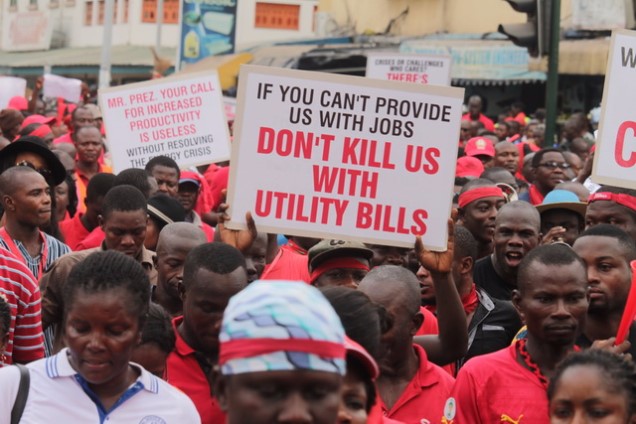
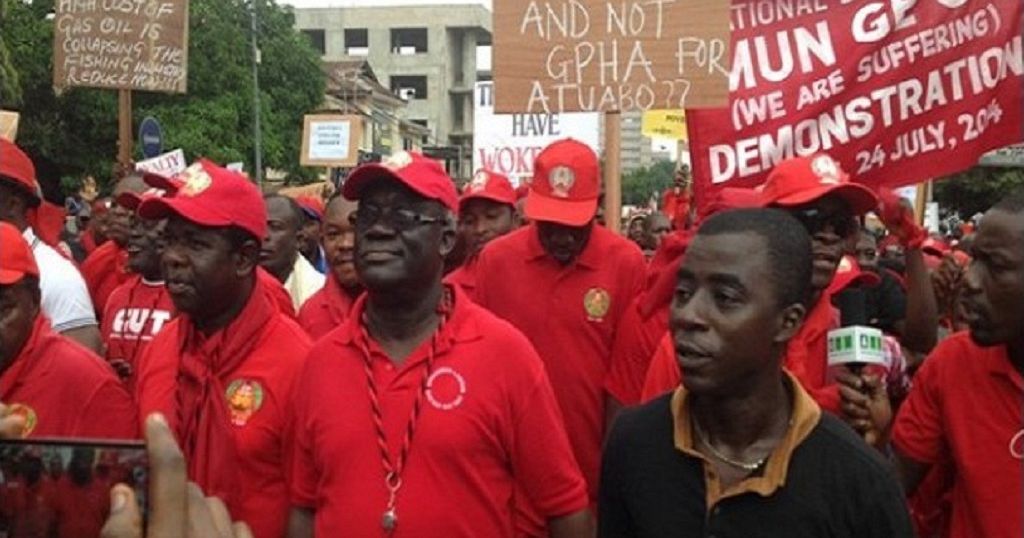
Economic Context: Why the Offer Feels Like a Slap in the Face
Ghana’s workers face high utility tariffs, taxes, and inflation that’s calmed but still bites. The IMF has flagged the public wage bill as unsustainable, urging fiscal restraint. Yet, unions argue salaries haven’t kept pace, with real income eroding. A 5% offer—far below the 21% tariff hike post-2025 deal—exacerbates this, especially when base pay influences pensions and security benefits.
Comparatively, past increments (23-25% in 2024) show capacity for more generous deals when pressured. With the 2026 budget looming, delays could deny workers timely relief, as unions like NAGRAT warn.
A Deeper Look at Empathy and Respect in Governance
The accusation of “lack of empathy and respect” isn’t hyperbolic. Public sector workers—teachers, nurses, administrators—deliver amid shortages and rising costs, yet feel sidelined. The low offer, if accurate, signals prioritization of fiscal austerity over human needs, potentially demoralizing the workforce and risking strikes.
Internal union rifts add complexity: dissenting groups see leadership as compromised, demanding 50%+ starts. Latest figures (27% vs. 20%/14%) suggest bargaining room, but opacity breeds distrust. Politically, this could fuel unrest in a post-election year, with calls for living wages clashing against budget constraints.
What Happens Next? Implications for Workers and the Nation
As talks resume on November 4, outcomes remain uncertain. If settled below expectations, rejections or protests could follow, disrupting services. Unions urge realistic government offers reflecting living costs, while analysts predict 15-20% as a compromise.
Turmoil in Ghana’s Labor Sector: Unions Slam Leadership Over 2026 Base Pay Negotiations
In the heart of Ghana’s ongoing economic struggles, a fresh wave of discontent has emerged from within the ranks of organized labor. On November 3, 2025, a group of aggrieved labor unions issued a scathing press statement condemning the leadership of Organised Labour for what they describe as weak negotiations and a lack of transparency in discussions over the 2026 base pay for public sector workers. This development comes at a time when Ghanaian workers are grappling with soaring utility tariffs, excessive taxes, and an escalating cost of living, making the stakes higher than ever.
As someone who’s followed labor issues in Ghana closely, this statement feels like a pivotal moment. It highlights deep divisions within the labor movement and raises questions about representation, accountability, and the future of worker welfare in the country.
A Cry of Disappointment and Betrayal
The statement, signed by representatives from various unions including Innovative Teachers, SSA-UoG (Senior Staff Association – University of Ghana), TEWU of TUC (Teachers and Educational Workers’ Union), and TUAAG (Technical Universities Administrators Association of Ghana), pulls no punches. It accuses the leadership of Organised Labour of starting negotiations with a “meagre proposal of 20%,” which was quickly slashed to 15% on the first day. In response, the government countered with an “insulting” 2.5%, later bumped to 5%—offers the signatories deem utterly lacking in empathy for workers’ sacrifices.
The unions express shock at this approach, arguing that negotiations should have begun with at least a 50% demand to reflect economic realities like inflation and the erosion of real income. They point to a recent precedent: earlier in 2025, Organised Labour accepted a 10% base pay increase, only for the government to hike utility tariffs by 21% shortly after, exacerbating workers’ financial woes.
Key criticisms include:
- Lack of Consultation: The leadership allegedly failed to engage other unions or associations before settling on their proposal, eroding confidence in the process.
- Secrecy and Media Blackout: Media were barred from covering post-negotiation briefings, a departure from established norms that raises suspicions about transparency.
- Broader Implications: The base pay directly impacts Social Security benefits post-retirement, meaning poor negotiations have long-term consequences for workers’ livelihoods.
- Call to Action: The signatories warn that if the outcome doesn’t favor labor, they will reject it and take steps to protect their members—potentially against both the government and Organised Labour’s leadership.
Background: The Road to the 2026 Negotiations
To understand the frustration, let’s rewind a bit. Ghana’s public sector workers operate under the Single Spine Salary Structure (SSSS), designed to ensure fair pay but often criticized for wide disparities between those on it and others. Negotiations for base pay increments are annual rituals, overseen by the Fair Wages and Salaries Commission (FWSC), involving Organised Labour (a coalition of unions) and the government.
Recent reports indicate that talks for 2026 kicked off amid mounting pressure. In October 2025, the FWSC invited labor and government to begin discussions, with unions like the Ghana Registered Nurses and Midwives Association (GRNMA) warning that delays could deny workers fair adjustments amid inflation. Public sector unions have been ramping up demands, with some pushing for at least a 10% hike to cushion against economic hardships.
By mid-October, videos and reports from outlets like JoyNews showed unions pressuring the government to finalize deals before the 2026 budget presentation. Organised Labour formally started negotiations, but as the statement reveals, the initial proposals fell far short of expectations.
A Facebook post from November 3 mirrors the statement, suggesting it’s gaining traction online and potentially signaling broader dissatisfaction. With Ghana’s economy still recovering from global pressures like post-COVID inflation and currency fluctuations, workers’ real incomes have been steadily eroding—making these negotiations a flashpoint.
Public Reactions: Echoes of Frustration on Social Media
The statement has sparked discussions on platforms like X (formerly Twitter), where Ghanaians and observers are voicing similar concerns. GHOne TV, a major news outlet, shared excerpts, garnering thousands of views and reactions, with many echoing the call for better empathy from the government.
Other users express broader disillusionment:
- One post questions why unions aren’t demanding higher percentages like 40%, criticizing the government’s 14% counter.
- Another highlights ongoing government negotiations yielding nothing tangible, reflecting widespread fatigue.
- A user points to unions’ failure to act decisively, noting that talks of strikes have fizzled out, leading to dissatisfaction.
These reactions underscore a growing sentiment that both union leadership and the government are out of touch with workers’ realities. In a country where unemployment remains high—exacerbating wage pressures—these voices amplify the statement’s warnings.
Is History Repeating Itself?
The big question posed in the statement—”Is history going to repeat itself?”—seems prescient. The 2025 acceptance of a 10% increase followed by tariff hikes set a troubling pattern. If 2026 follows suit, it could lead to strikes, further economic disruption, or even a splintering of the labor movement.
Critics argue that Organised Labour’s lowball starting point reflects a lack of bargaining power or perhaps undue influence from the government. The media blackout adds fuel to conspiracy theories, eroding trust. On the flip side, negotiating in a tough fiscal environment isn’t easy; Ghana’s government faces budget constraints, and unions must balance demands with realism.
Long-term, this highlights systemic issues: the pay gap in SSSS, inadequate retirement benefits, and the need for inclusive consultations. If unaddressed, it could demoralize the workforce, impacting essential services like education and healthcare.
What Happens Next?
As we head into November 2025, with the budget presentation looming, all eyes are on the negotiation table. The aggrieved unions have thrown down the gauntlet, promising to reject unfavorable outcomes. For workers, this is about more than percentages—it’s about dignity, transparency, and a fair shot at a living wage.
If you’re a Ghanaian worker or union member, reach out to the signatories listed above to voice your support or concerns. Stay tuned for updates; this story is far from over.
What do you think? Is Organised Labour failing its members, or is this internal politics at play? Share your thoughts in the comments below.
Follow us on WhatsApp for more updates: https://whatsapp.com/channel/
Seekers Consult
Contact Us for Your Study Abroad Journey
We search for schools and check available scholarships for you
Contact: 0550414552 / 0362297079

Loan for government workers
Turnitin checker (Plagiarism and AI checker)
Transcript Application ( College, UEW, UCC, KNUST ) and Evaluation
English Proficiency
Recommendation letter
Project work/thesis for undergraduate, master’s, and PhD students.
Apply for Affidavit, Gazette instantly
Passport and Visa Applications
All other Internet Services


